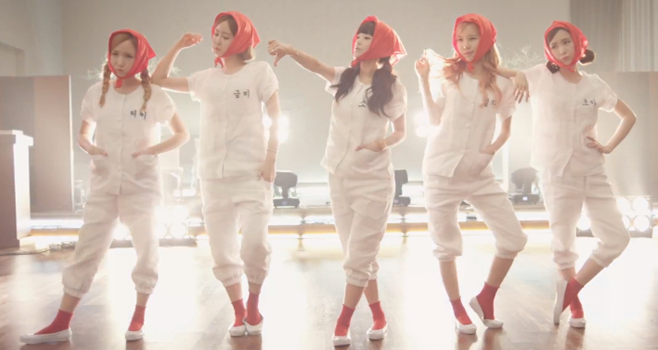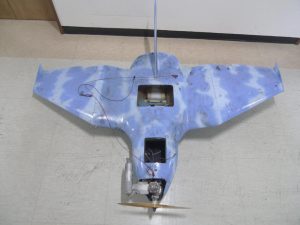Crayon Pop in a music video for the group’s single, “Uh-ee.” Image via Chrome Entertainment
When it comes to Korean music, it doesn’t get any more traditional than “trot.” But as girl group Crayon Pop found out, it can take just one word to get a song banned from broadcast.
Last Thursday, South Korean network KBS confirmed it had banned “Uh-ee,” Crayon Pop’s latest single, for the use of a Japanese word, “ppikka,” which means “shiny” in Japanese.
[ad#336]
There is nothing inappropriate about the word, except for that it is Japanese in origin, according to the executives at KBS, which is well-known for being a conservative network.
“KBS notified us that ‘ppikka‘ is a vestige of Japanese imperialism and needs to be refined,” said Lee Sung-soo, an official at Chrome Entertainment. All other Korean television networks, however, approved the song.
The chorus of the catchy electro-pop song begins with “ppikka” and “bbunjjuk,” which is the Korean equivalent to “shiny,” as the girls sing about making sure they live their lives to the fullest, with shiny things. There is no reference to anything Japanese, and “ppikka bbunjjuk” is a commonly used term to describe something shiny—or someone who likes shiny things.
[ad#336]
According to Chrome Entertainment, the company has since changed the word to “bbunjjuk” and the band has re-recorded the song for KBS. Because Korea was under Japanese occupation between 1910 and 1945, the South Korean government used to have a policy of banning imports of Japanese culture, but no longer has such a policy. KBS, however, has a track record of banning songs and videos that it deems inappropriate, as it did last year with Psy’s “Gentleman” music video, which depicts the singer kicking a traffic cone.







